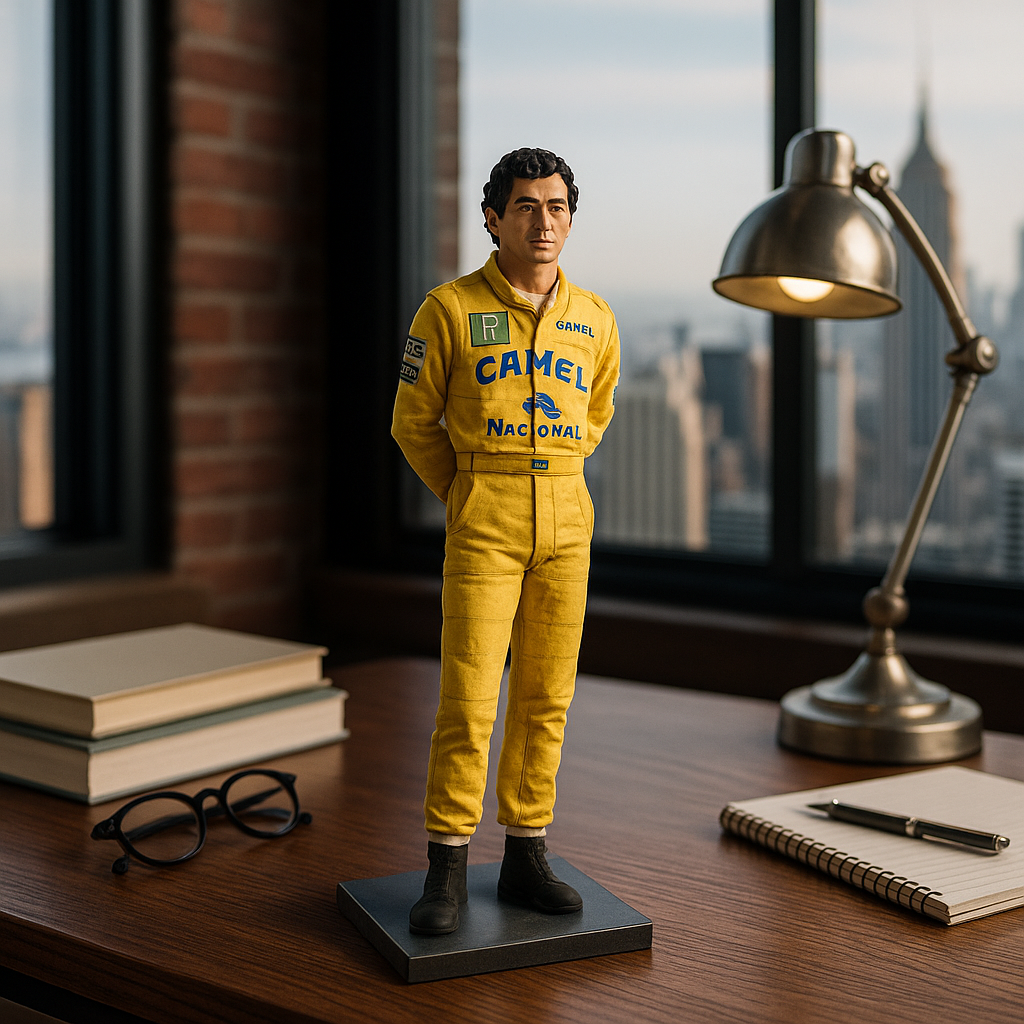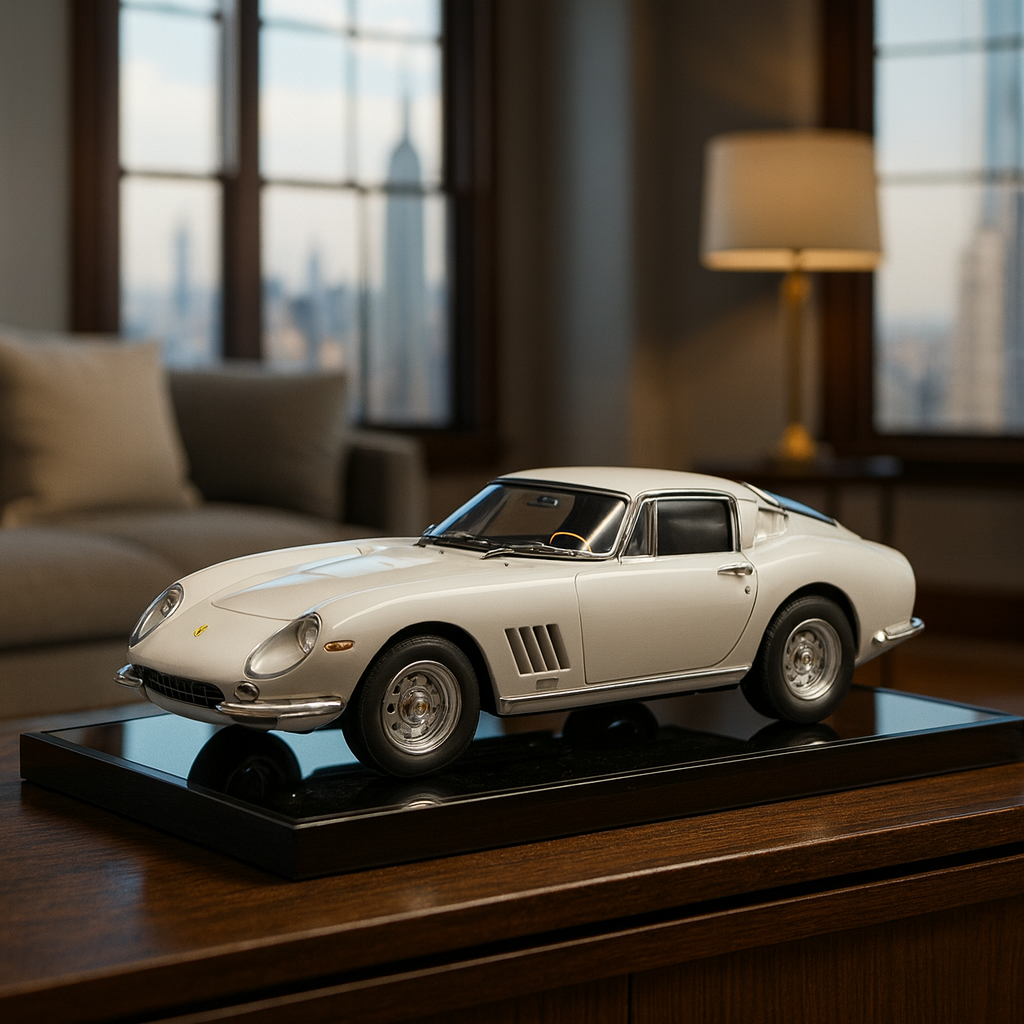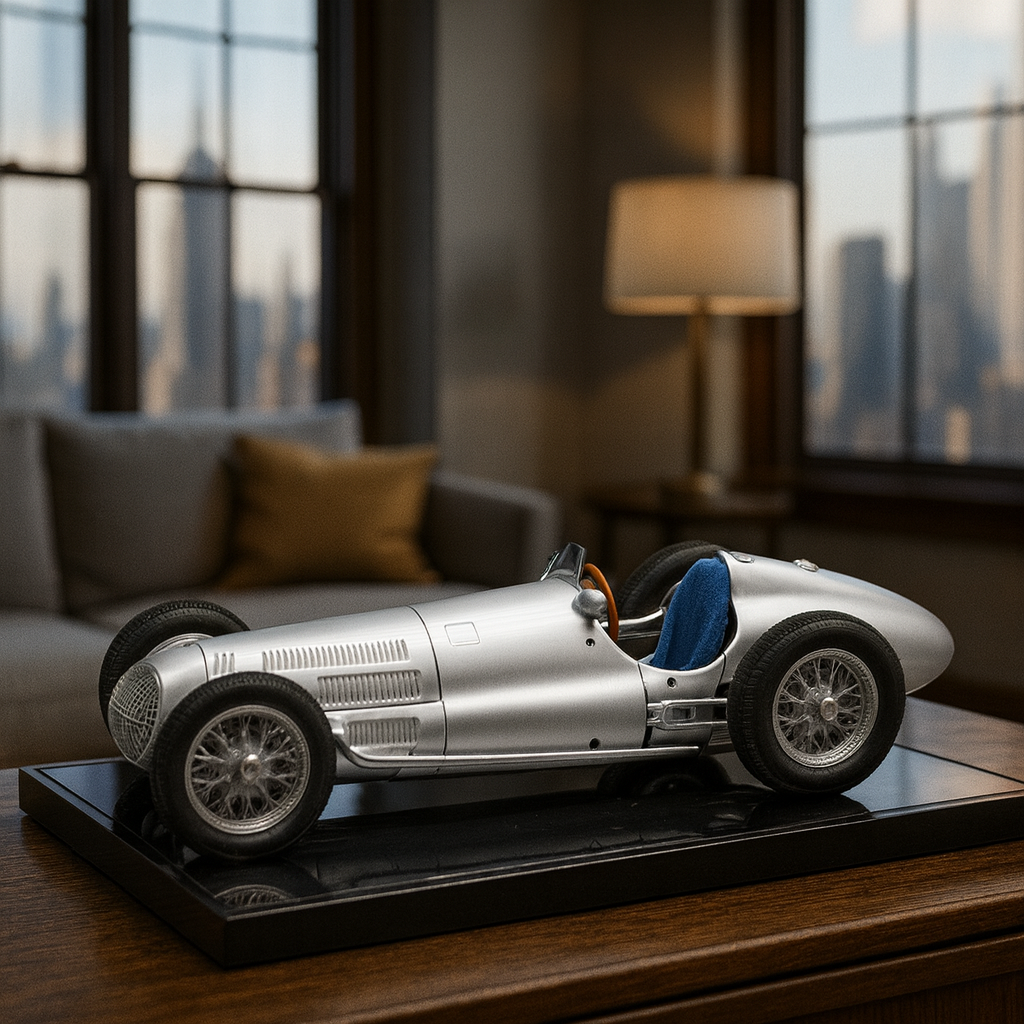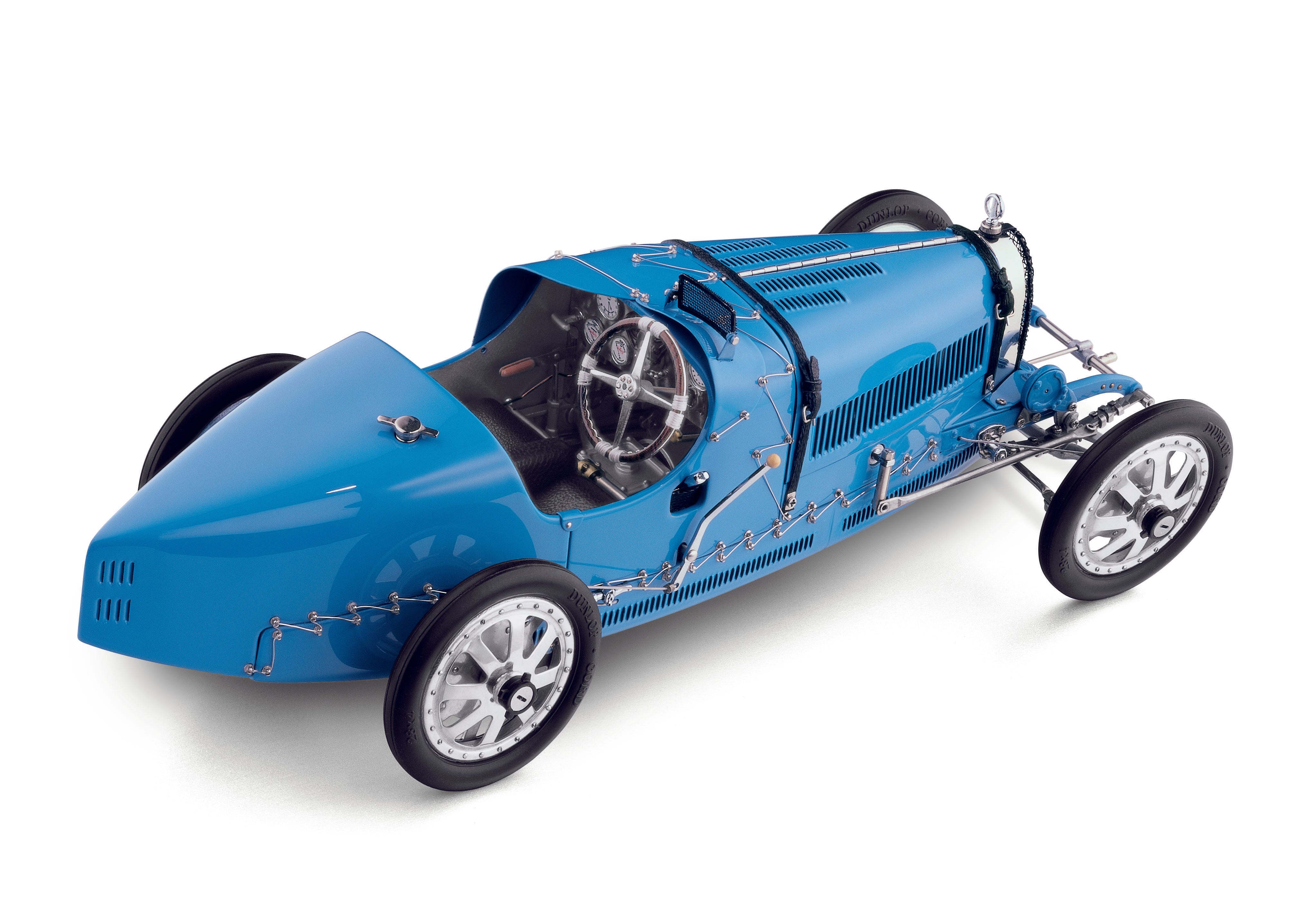
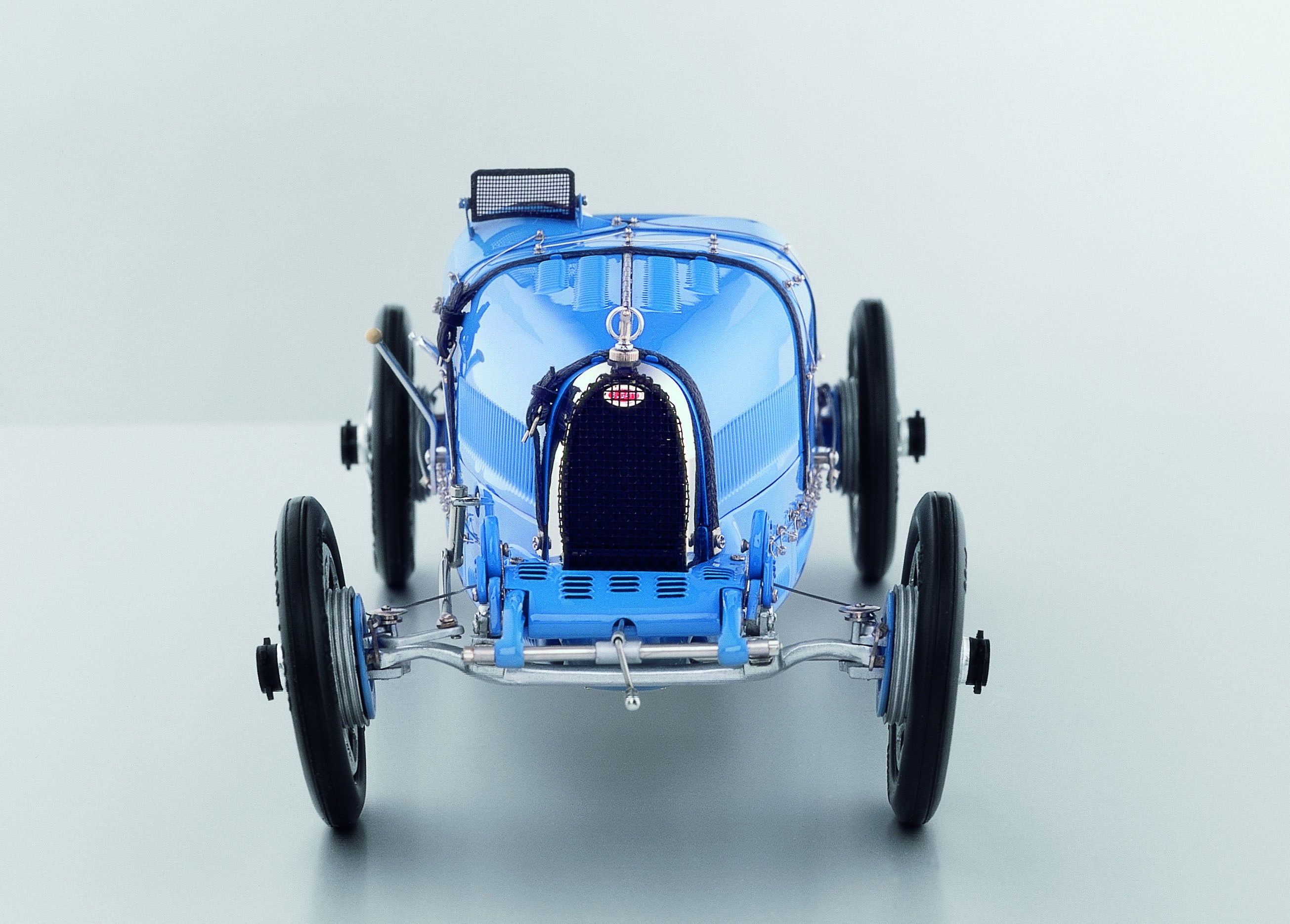
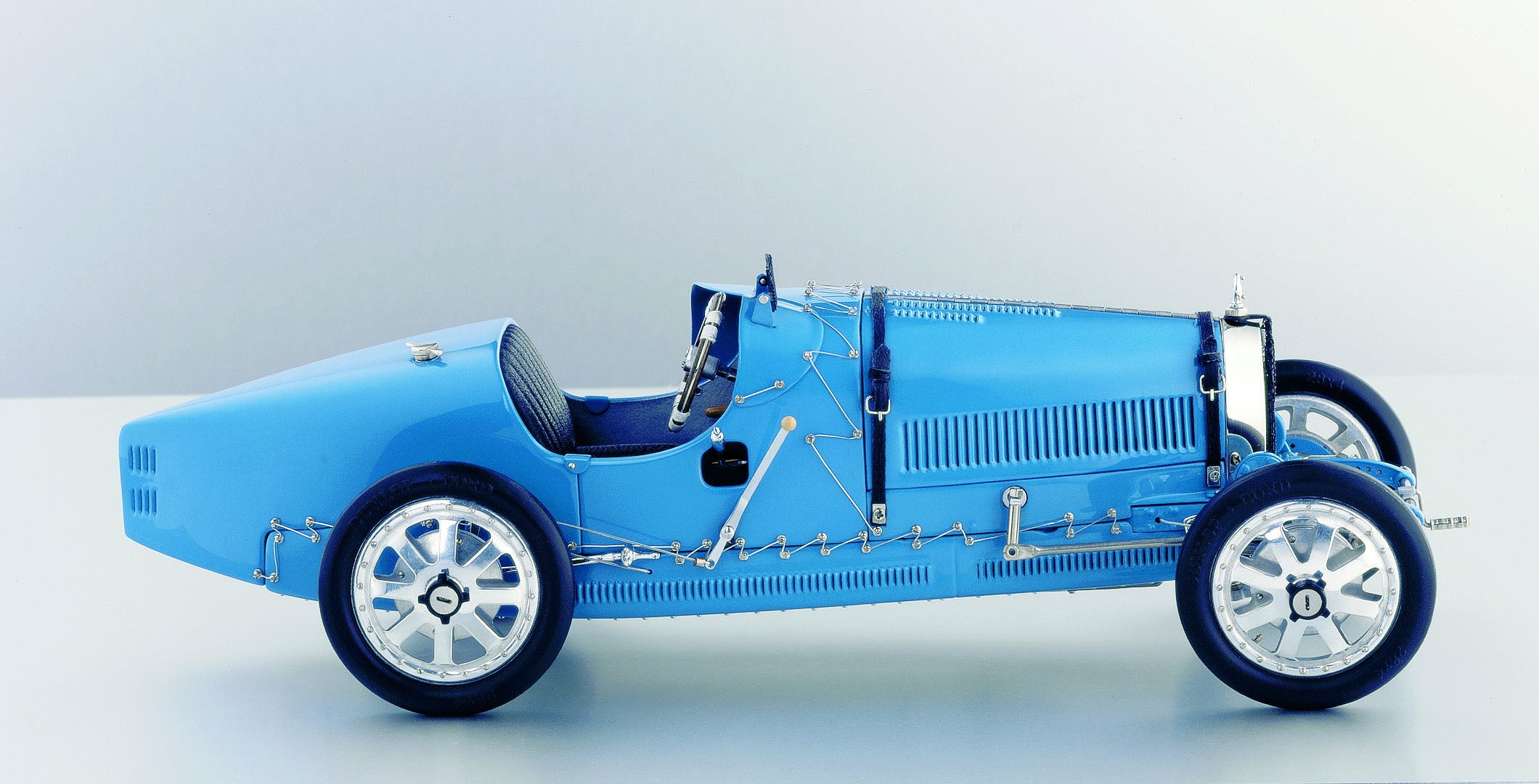
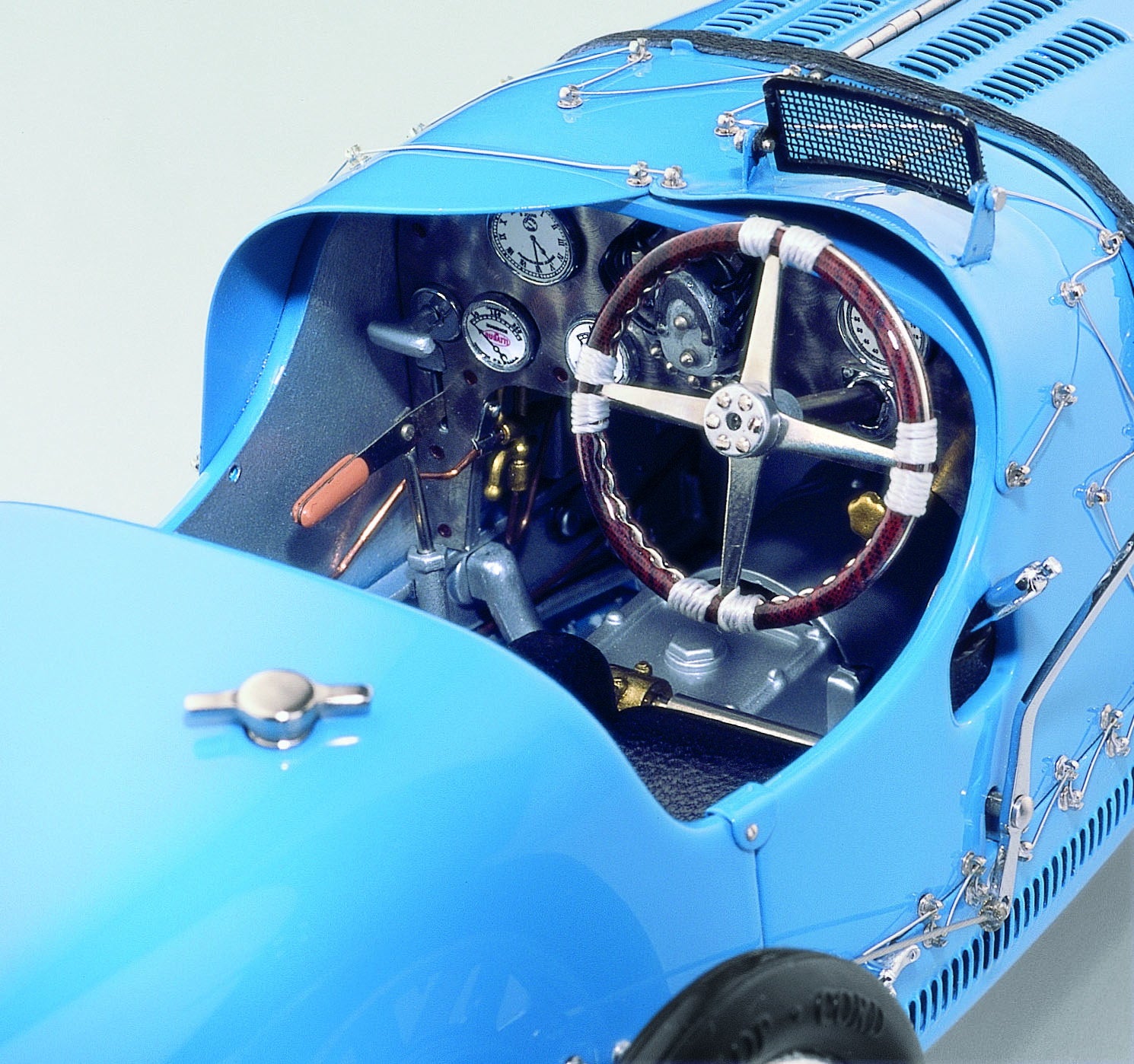
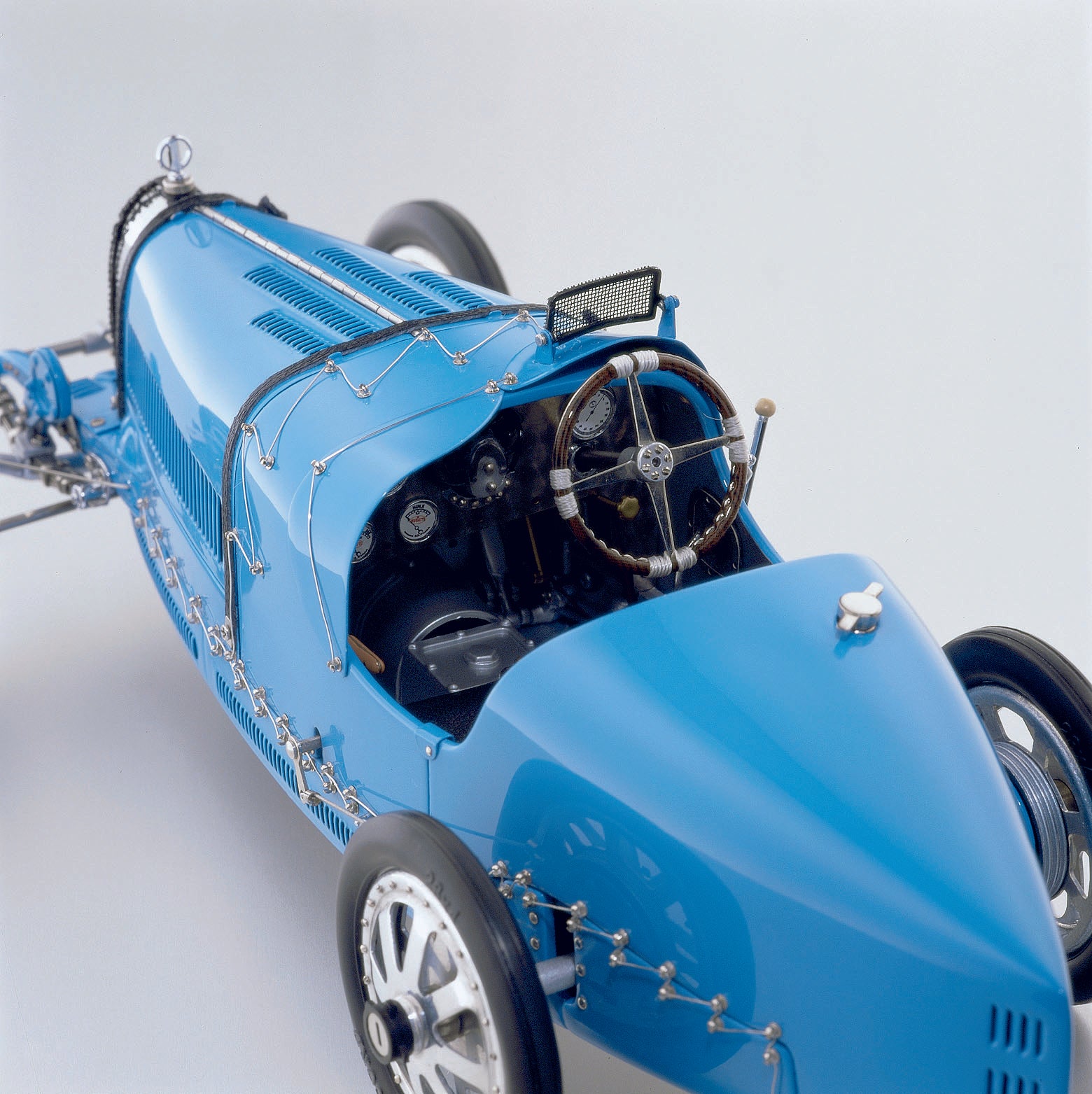
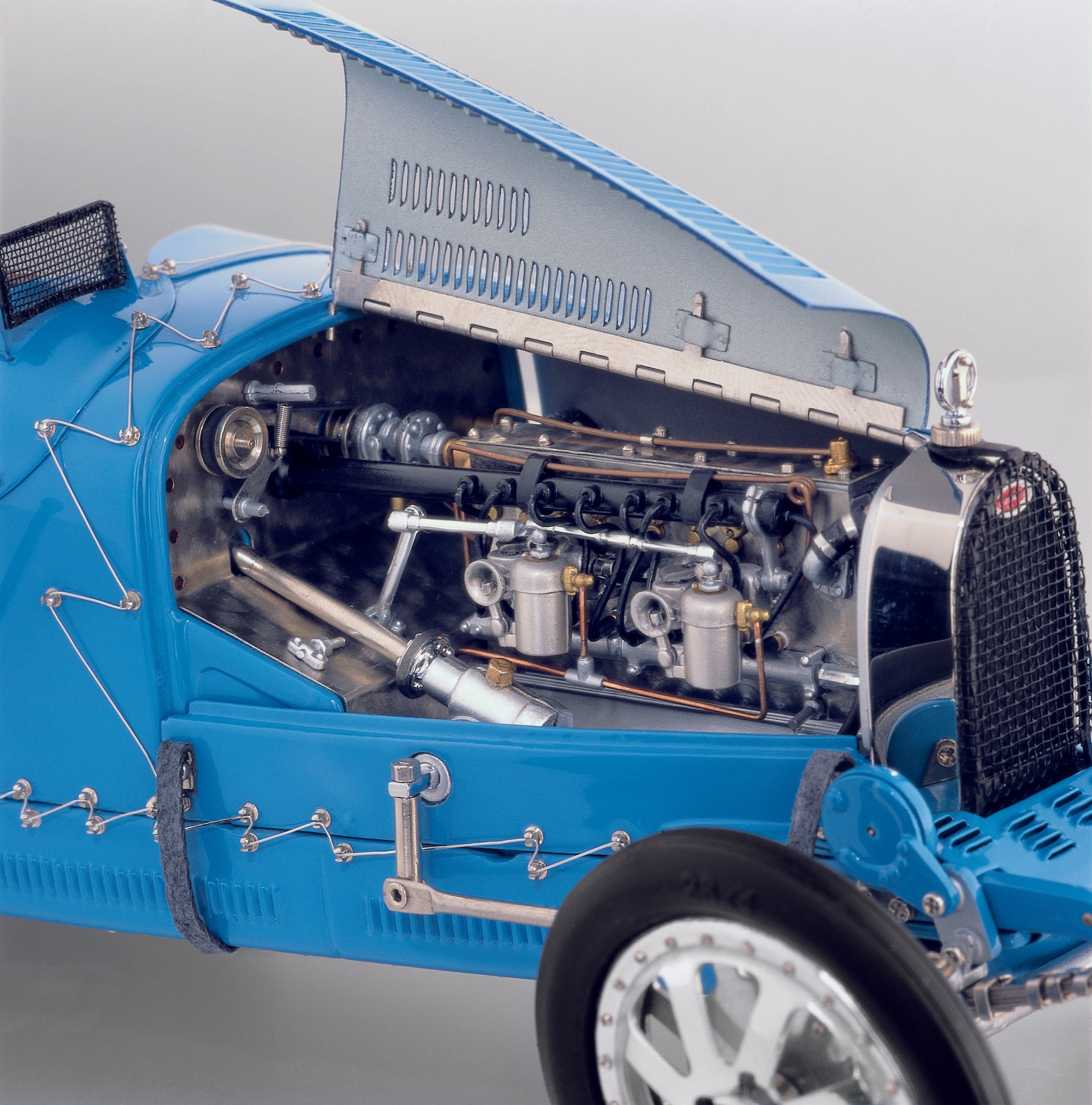
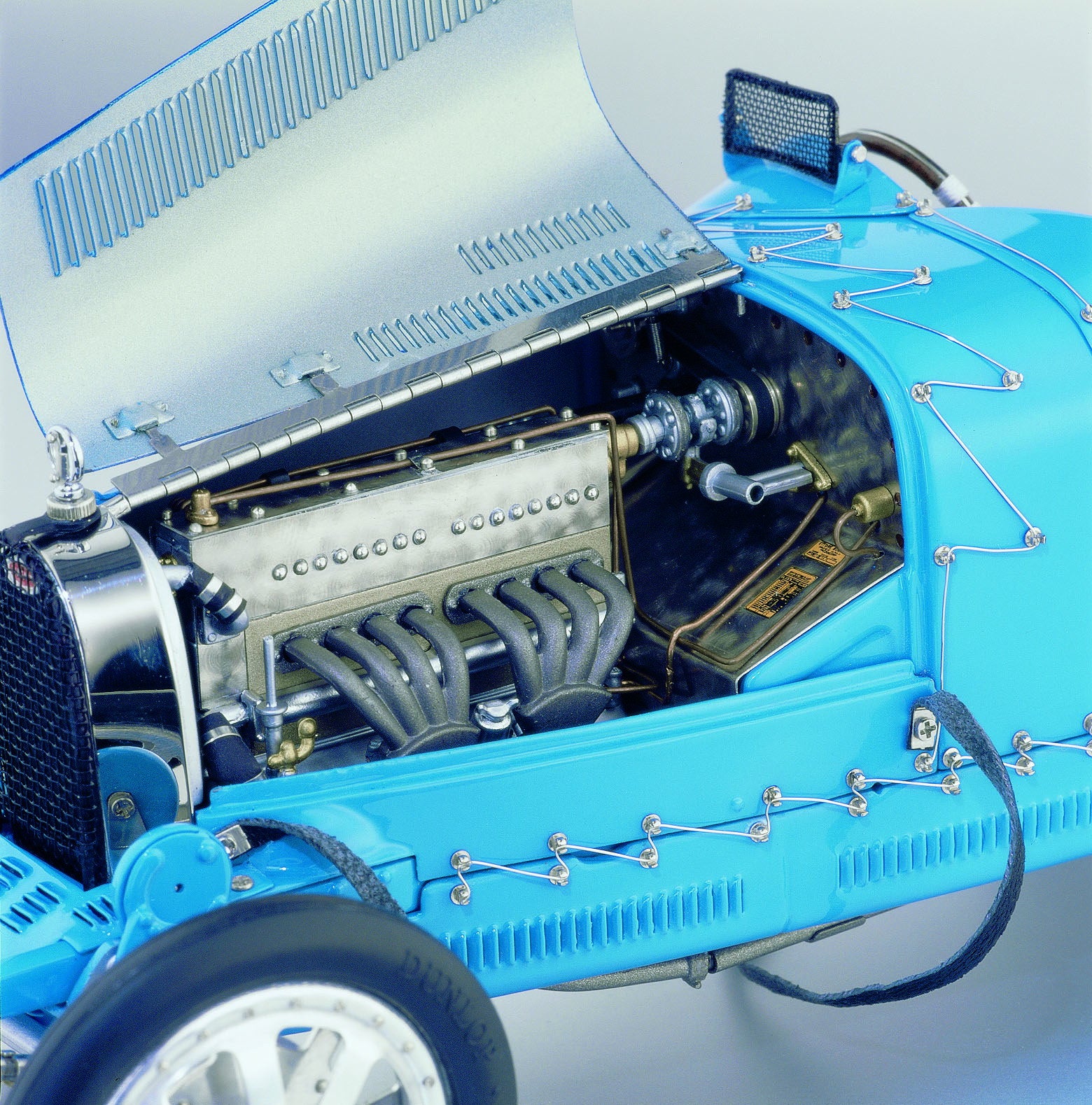
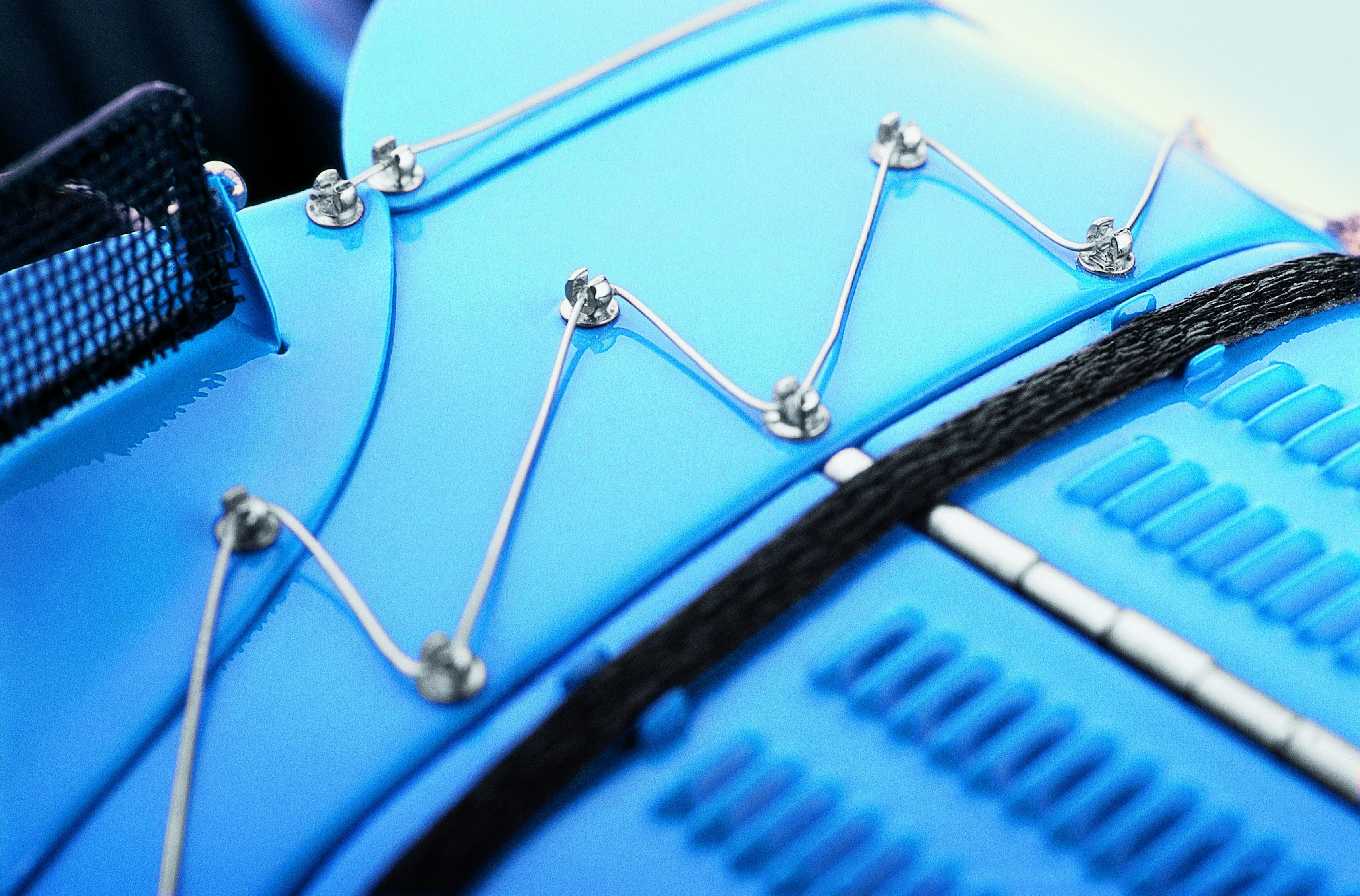

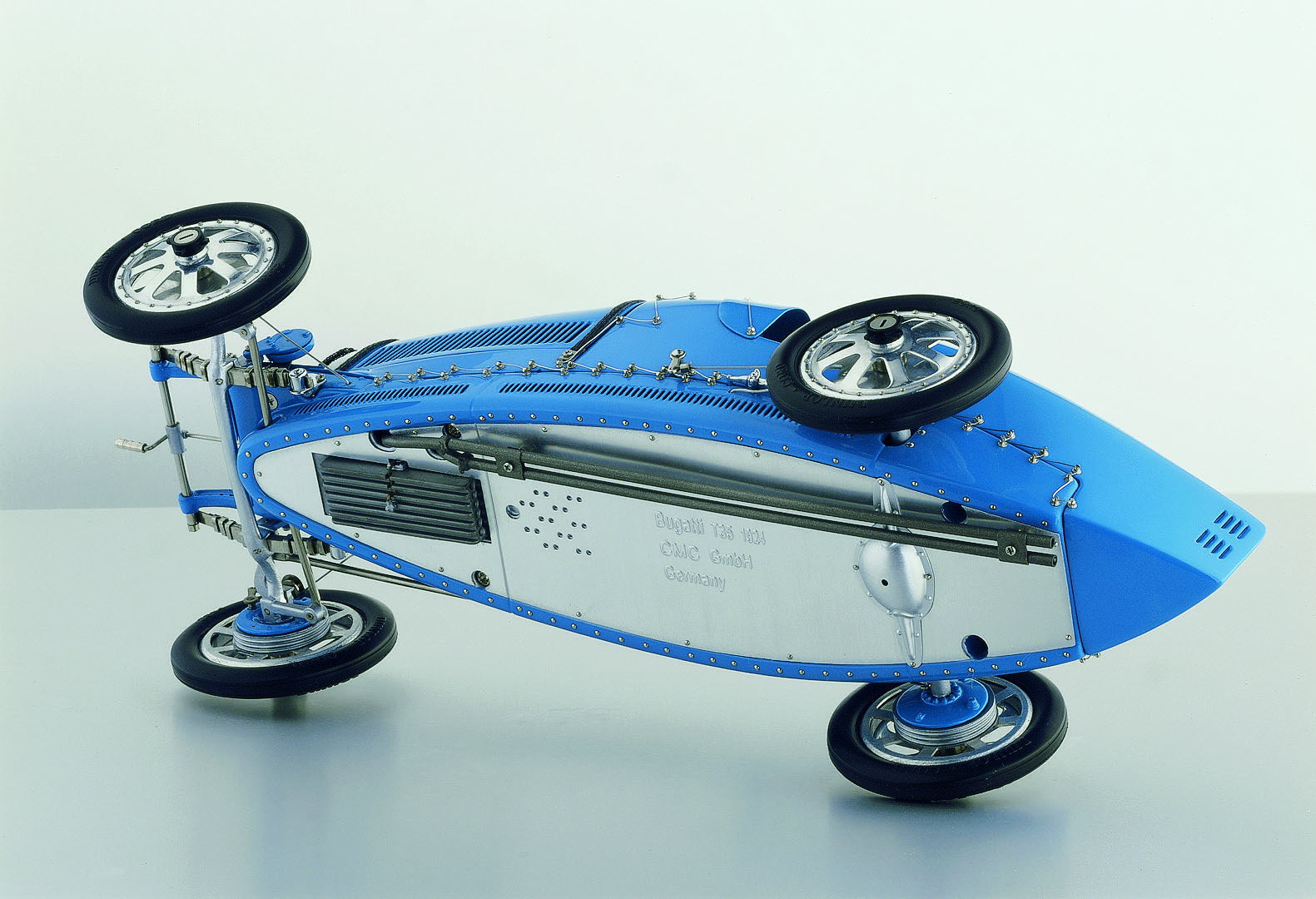
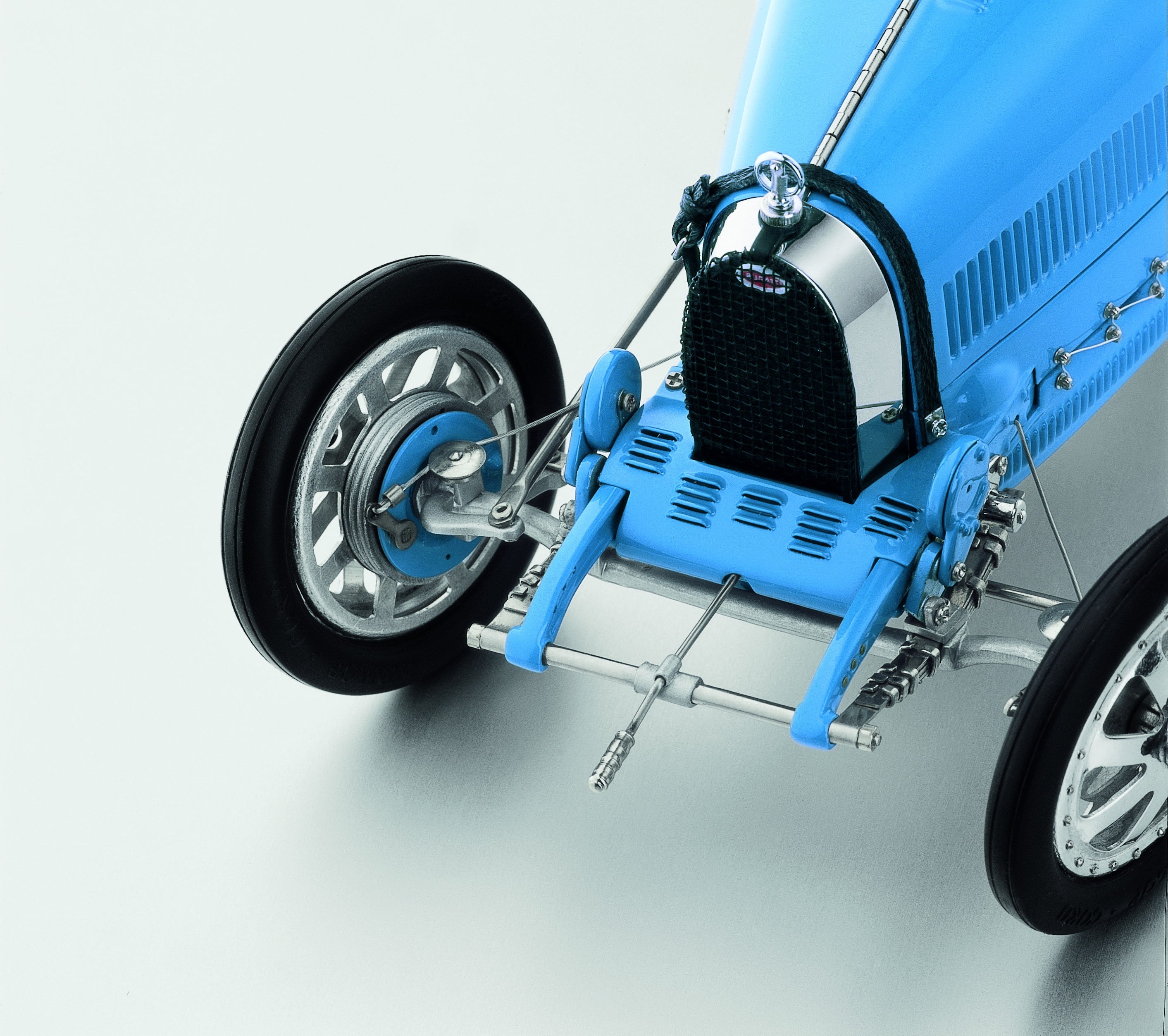
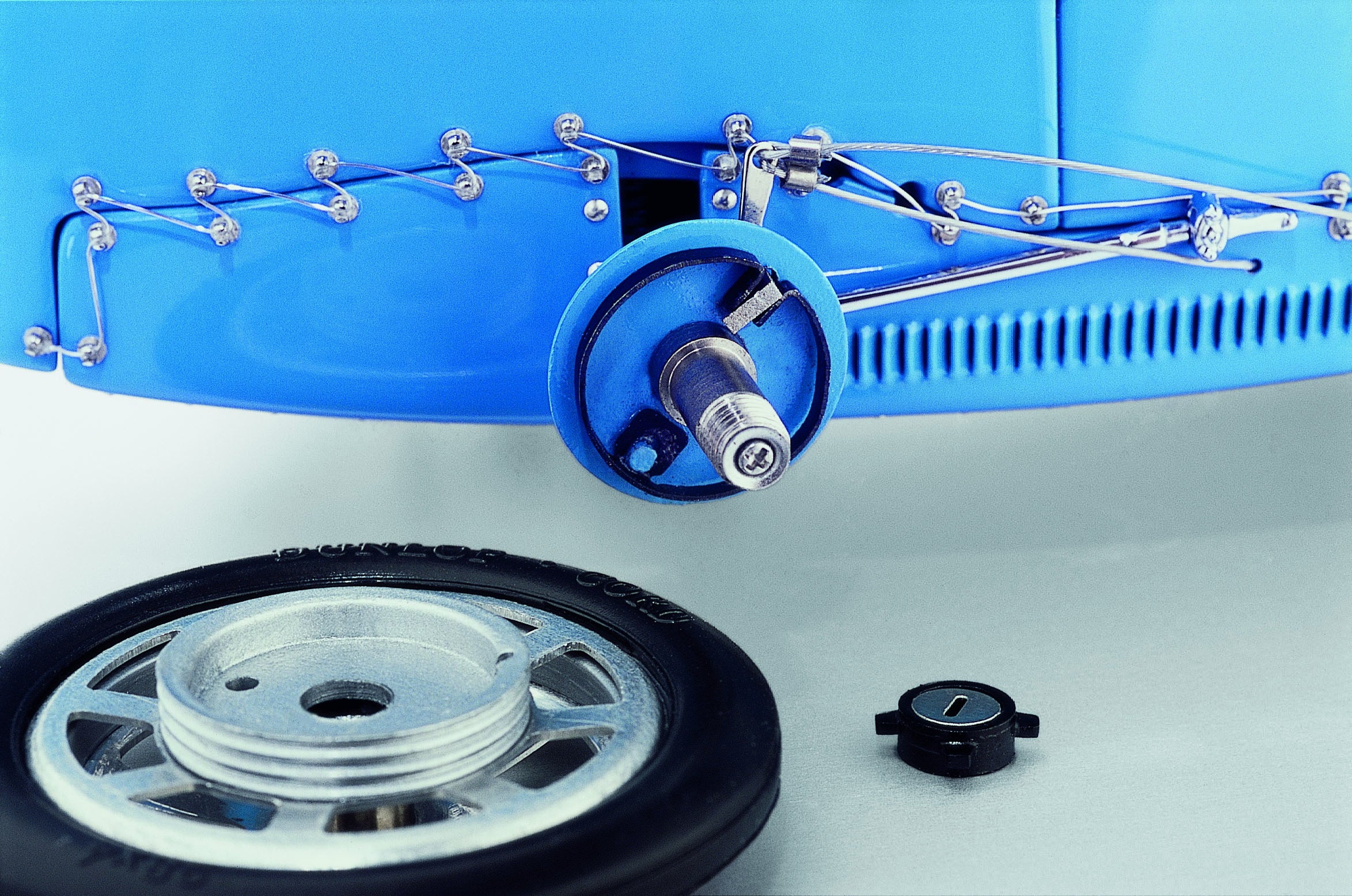
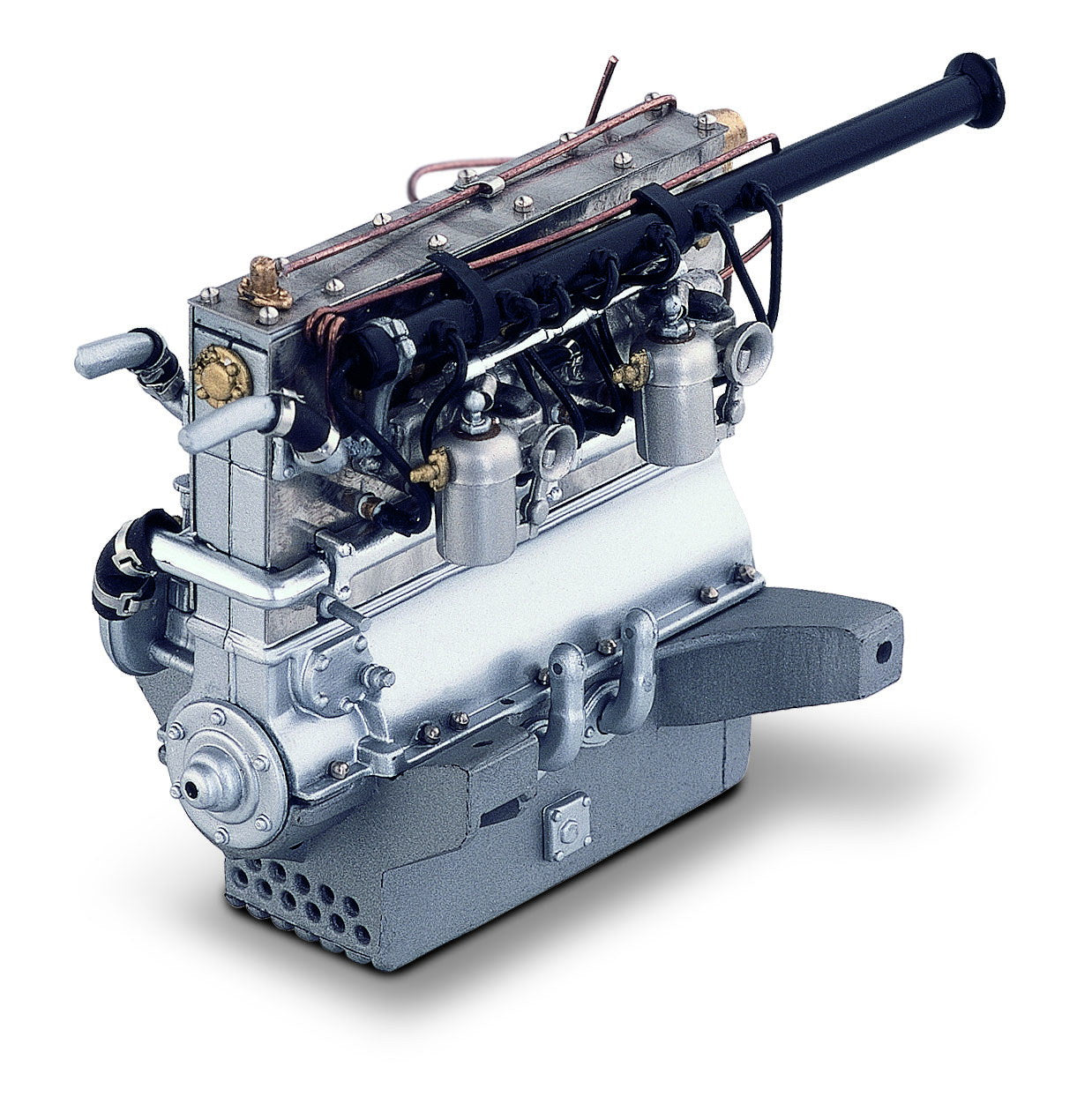
1/18 Bugatti T35 Grand Prix 1924 CMC M-063

Description
Model of an entire era
Ettore Bugatti, with his groundbreaking design of the Type 35, created the dominant racing car of an entire era. The car made its Grand Prix debut on August 3, 1924, in Lyon, France. To this day, the Bugatti Type 35, with its 1,851 triumphs documented between 1924 and 1927, is considered the most successful inline eight-cylinder car of all time.
cylinders of all time. "Le Patron," as Ettore Bugatti was reverently called, entered the Olympus of automobile manufacturers – as a gifted designer and one of the most important pacesetters in the history of technical design.
However, the so-called gentlemen drivers who drove Bugatti vehicles also had their own flair and their own very special charisma. Whether counts, gigolos, bon vivants, or soldiers of fortune: the men who sat behind the wheel were usually immensely wealthy. Let our model transport you to the world of the Golden Twenties. To the world of the aesthete Bugatti with his fine sense of exceptional design and supreme elegance.
926 parts, a great deal of expertise, and attention to detail were necessary to hand-build the Type 35 in this Grand Prix racing version, i.e., without the side-mounted spare wheel, as a small work of art – with its already legendary horseshoe-shaped radiator, the aluminum-cast spoked wheels, and its cuboid, smooth-surfaced engine.
Link to the press archive
Technical data of the original vehicle
Eight-cylinder in-line engine (twin block), overhead camshaft
with three valves per cylinder, two Zenith horizontal carburettors
| Perfomance: | 95 hp at 6,000 rpm |
| Engine capacity: | 1,991 cc |
| Top speed: | approx. 180 km/h |
| Wheelbase: | 2,400 mm |
| Total length: | 3,700 mm |
Notice
Model of an entire era
Ettore Bugatti, with his groundbreaking design of the Type 35, created the dominant racing car of an entire era. The car made its Grand Prix debut on August 3, 1924, in Lyon, France. To this day, the Bugatti Type 35, with its 1,851 triumphs documented between 1924 and 1927, is considered the most successful inline eight-cylinder car of all time.
cylinders of all time. "Le Patron," as Ettore Bugatti was reverently called, entered the Olympus of automobile manufacturers – as a gifted designer and one of the most important pacesetters in the history of technical design.
However, the so-called gentlemen drivers who drove Bugatti vehicles also had their own flair and their own very special charisma. Whether counts, gigolos, bon vivants, or soldiers of fortune: the men who sat behind the wheel were usually immensely wealthy. Let our model transport you to the world of the Golden Twenties. To the world of the aesthete Bugatti with his fine sense of exceptional design and supreme elegance.
926 parts, a great deal of expertise, and attention to detail were necessary to hand-build the Type 35 in this Grand Prix racing version, i.e., without the side-mounted spare wheel, as a small work of art – with its already legendary horseshoe-shaped radiator, the aluminum-cast spoked wheels, and its cuboid, smooth-surfaced engine.
Link to the press archive
Technical data of the original vehicle
Eight-cylinder in-line engine (twin block), overhead camshaft
with three valves per cylinder, two Zenith horizontal carburettors
| Perfomance: | 95 hp at 6,000 rpm |
| Engine capacity: | 1,991 cc |
| Top speed: | approx. 180 km/h |
| Wheelbase: | 2,400 mm |
| Total length: | 3,700 mm |




